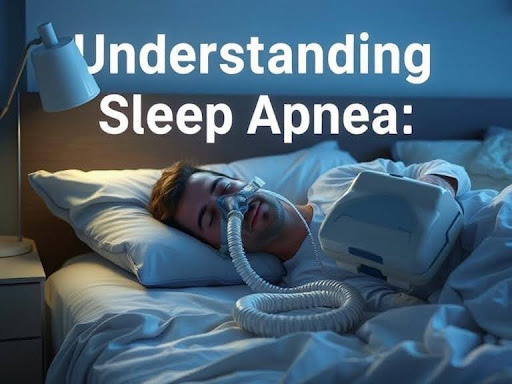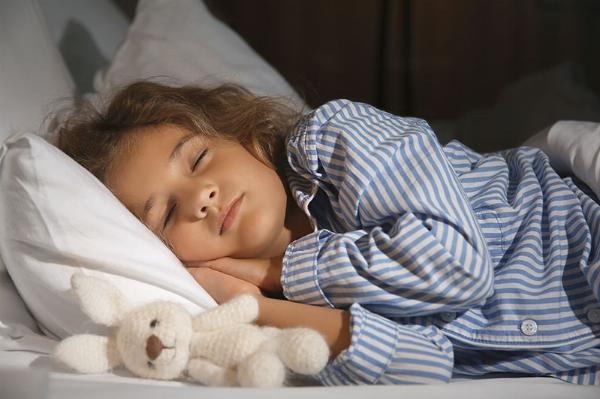Understanding Sleep Apnea: Causes, Symptoms, and Treatment

Strong 8k brings an ultra-HD IPTV experience to your living room and your pocket.
Sleep is essential for our health, but for millions of people, night rest is interrupted by a condition called sleep apnea. This disorder affects breathing during sleep and can lead to serious health issues if left untreated.
In this blog, we’ll take a closer look at what sleep apnea is, its symptoms, causes, how it affects health, and the available treatment options. Whether you or your loved one may have this condition, or just want to know more, this guide offers essential insights to help you understand and manage sleep apnea effectively.
What is Sleep Apnea?
Sleep apnea is a sleep disorder where a person’s breathing repeatedly stops and starts during sleep. These pauses in breathing can last a few seconds to a minute and can happen more than 30 times an hour. The most common type is obstructive sleep apnea (OSA), which happens when the muscles in the throat relax too much and block the airway. There's also central sleep apnea (CSA), which involves the brain failing to send proper signals to the muscles that control breathing.
Symptoms of Sleep Apnea
The symptoms of sleep apnea depend on the type of condition. However, some common signs include:
- Loud snoring: This is a sign of obstructive sleep apnea, though not everyone who snores has sleep apnea.
- Choking or gasping for air while sleeping: People with sleep apnea often wake up suddenly, during the night then fall back asleep.
- Excessive daytime sleepiness: Individuals with sleep apnea may feel tired or drowsy throughout the day, even after a full night’s sleep.
- Morning headaches: Waking up with a headache is common for people with sleep apnea due to low oxygen levels during the night.
- Dry mouth or sore throat upon waking: This can occur as a result of breathing through the mouth while sleeping, which is common with sleep apnea.
Diagnosis of Sleep Apnea
Diagnosing sleep apnea involves a sleep study, also known as polysomnography. This test monitors various body functions during sleep, including brain activity, eye movement, heart rate, breathing pattern, oxygen levels, and muscle activity. It can be done in a sleep center or sometimes at home using portable devices. A healthcare provider will analyze the results to determine the type and condition of sleep apnea.
How Sleep Apnea Affects Health
Sleep apnea doesn’t just cause disrupted sleep—it can also have significant long-term effects on overall health. Some of the potential complications include:
- Cardiovascular problems: People with sleep apnea are at an increased risk of high blood pressure, heart disease, and stroke. The repeated drops in blood oxygen levels during apneas can strain the cardiovascular system.
- Type 2 diabetes: Sleep apnea can contribute to insulin resistance, make it more difficult for the body to manage blood sugar levels.
- Mood disorders: The constant disruption of sleep can lead to mental health issues, including anxiety, depression, and irritability.
- Daytime fatigue: Chronic sleep can result in excessive daytime drowsiness, affecting your ability to work, drive, and function in daily life.
- Decreased life expectancy: Sleep apnea increases the risk of serious conditions like heart disease and stroke, can shorten life expectancy.
Treatment and Therapy Options
If sleep apnea is diagnosed, there are several effective treatment options:
- Lifestyle Changes: For mild cases of sleep apnea, certain lifestyle changes may help manage symptoms:
- Weight loss: Losing excess weight can reduce the amount of fat around the neck, decreasing the risk of airway blockage.
- Sleep position: Sleeping on your side rather than your back can prevent the tongue and soft tissues of the throat from obstructing the airway.
- Avoiding alcohol: These substances can relax the muscles in the throat, increasing the risk of airway collapse.
Continuous Positive Airway Pressure (CPAP) Machine: The most common treatment for severe obstructive sleep apnea, a CPAP machine delivers a constant stream of air through a mask that keeps the airway open during sleep. Its effectiveness reduces apnea and improves sleep quality.
BiPAP and APAP Machines: For people who find CPAP uncomfortable, BiPAP Machine (Bilevel Positive Airway Pressure) and APAP (Automatic Positive Airway Pressure) machines are alternatives. These machines adjust air pressure based on the user’s breathing patterns.
Surgery: In severe cases where other treatments aren’t effective, surgery may be necessary. Surgical options can include:
- Tonsillectomy or adenoidectomy for children with enlarged tonsils or adenoids.
- Uvulopalatopharyngoplasty (UPPP): A procedure to remove excess tissue from the throat to open the airway.
- Genioglossus advancement (GA): Surgery to reposition the muscles that control the tongue and prevent airway collapse.
Living with Sleep Apnea
Managing sleep apnea is an ongoing process, but with the right treatment and lifestyle, many people experience significant improvements in their quality of life. Regular check up with healthcare providers is essential to ensure effective treatment.
Support groups and educational resources can also help individuals with the emotional and social sides of sleep apnea.
Conclusion
Sleep apnea is a common but serious condition that affects millions worldwide. Understanding its symptoms, causes, and treatment options can help individuals take best steps toward better sleep and overall health. If your loved one may have sleep apnea, it’s important to consult a healthcare professional and seek proper diagnosis and management.
Note: IndiBlogHub features both user-submitted and editorial content. We do not verify third-party contributions. Read our Disclaimer and Privacy Policyfor details.







